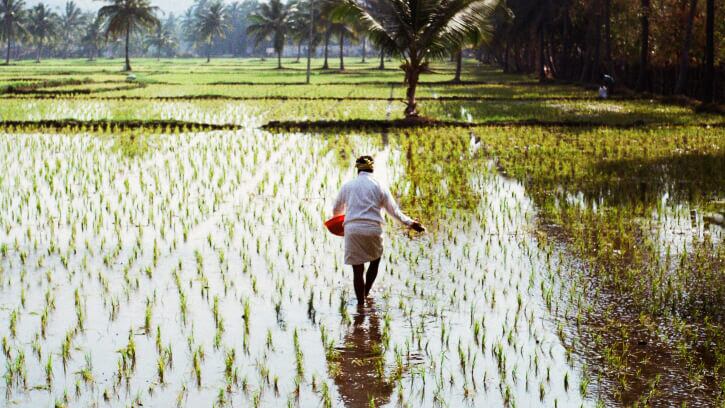This partnership aims to address both environmental and economic challenges faced by farmers, especially the rice-growing smallholders.
An advanced irrigation method called Alternate Wetting and Drying (AWD) will be introduced on an initial 12,000 acres of land in Barabanki district, Uttar Pradesh, for paddy cultivation.
Said to reduce irrigation by up to 30%, the AWD system irrigates the fields only three to five days after water has depleted, instead of keeping them in a continuously flooded condition. This allows paddy crop roots to access water in the subsurface soil, which remains saturated.
As a result, total water consumption for rice cultivation is 20% to 30% less than continuous flooding, while methane emissions could decrease by up to 48%, without compromising on yield.
“This collaboration transcends the boundaries of a mere project. It is a manifestation of our collective vision for a greener future. By reducing water consumption and greenhouse gas emissions, we are not just addressing the challenges of today, but paving the way for a more sustainable tomorrow,” said Amandeep Panwar, CEO of BharatRohan.
To incentivise farmers to adopt the AWD system, BharatRohan offers comprehensive assistance, from pipe installation to guidance on water level monitoring.
In addition, the firm provides crop monitoring services to safeguard against losses due to pests, diseases, and nutrient deficiencies. Farmers can access these services and advisories via the BharatRohan WhatsApp chatbot.
“Having worked closely with farmers in the region, I’ve witnessed first-hand challenges they face with water scarcity and flood irrigation. This partnership seeks to cut down on manual work while producing better yield,” added Vimal Kumar Verma, Farmer Success Manager at BharatRohan.
Future-proof farming
According to the Food and Agriculture Organization of the United Nations (FAO), more than 3bn people live in agricultural areas with high or very high levels of water scarcity, and it is estimated that by 2050, 57% of the global population will live in areas that suffer from water shortages for at least one month each year.
With traditional flooded irrigation, producing 1kg of rice requires 2500 litres of water.
Furthermore, agriculture contributes to 13.5% of global greenhouse gas emissions, with rice production alone accounting for 11% of it.
“Rice is the primary crop for millions of farmers in India, and it is also the staple food for more than 50% of the country’s population.
“Therefore, we need to grow rice sustainably without any yield penalty. AWD is a science-driven agronomic management practice of rice that saves water and other costs for the farmers,” Dr Sudarshan Dutta, Lead – Nature-based Solutions (Agriculture) at Kosher Climate, reiterated.
Barabanki farmer Ashish Kumar Verma, who has been using BharatRohan’s services since 2019, also shared about his experience with the firm’s tech solutions.
“They have consistently supported us in enhancing productivity and minimising input resources — amid challenges such as water scarcity and rising diesel costs — with their innovative technology and training.
“With the introduction of the AWD technique, we learned that continuous flooding isn’t essential for rice production. Through alternate drying, we are able to conserve both fuel and water, and can earn additional income to invest in technology for improved crop production,” said Verma.




